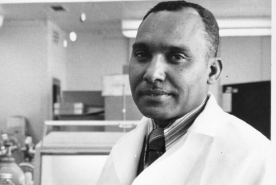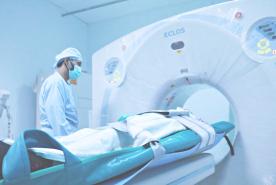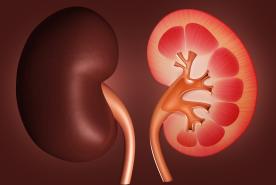August 12, 2014
 More than 37 million Americans—one in seven adults—have kidney disease. Millions more are at increased risk for getting it, and most don’t know it. Kidney disease can be found and treated early to prevent more serious kidney disease and other complications.
More than 37 million Americans—one in seven adults—have kidney disease. Millions more are at increased risk for getting it, and most don’t know it. Kidney disease can be found and treated early to prevent more serious kidney disease and other complications.
The National Kidney Foundation (NKF) recommends three simple tests to check for kidney disease:
For information on upcoming NKF kidney health screenings in your area, visit the KEEP (Kidney Early Evaluation Program) Web site at www.kidney.org/KEEP.
- Blood pressure. High blood pressure is the second most common cause of kidney disease. High blood pressure may also happen as a result of kidney disease. A blood pressure of 140/90 or higher is called high blood pressure. If you have diabetes or kidney disease a target less than 130/80 is recommended. Keeping blood pressure under control is important to lower risk of kidney disease, heart and blood vessel disease, and stroke.
- Urinalysis. A urinalysis is a test that checks a sample of your urine for the amount of protein, blood (red blood cells and white blood cells) and other things. Protein and red and white blood cells are not normally found in the urine, so having too much of any of these may mean kidney disease. Having protein in the urine is one of the earliest signs of kidney disease especially in people with diabetes. Several other tests can be done to check for protein in urine. One of the tests is called the protein to creatinine ratio. It is the most accurate way to measure protein in the urine. A value of 200 mg/gm or less per day is normal. A value higher than 200 mg/gm is too high. Another test, called the albumin to creatinine ratio, is good for people at increased risk for kidney disease—people with diabetes, high blood pressure, or family history of diabetes, high blood pressure or kidney disease. A value of less than 30 mg/gm per day is normal for the albumin to creatinine ratio; a value of 30 mg/gm per day or higher is high and may be a sign of early kidney disease. With either of these tests, you don’t need to collect a 24-hour urine sample, which may be hard to collect.
- Glomerular filtration rate (GFR). GFR is estimated from results of a serum (or blood)creatinine test. The GFR tells how well your kidneys are working to remove wastes from your blood. It is the best way to check kidney function. A serum (or blood) creatinine test alone should not be used to check kidney function. GFR is calculated using the serum creatinine and other factors such as age and gender. In the early stages of kidney disease GFR may be normal. A value of 60 or higher is normal (GFR decreases with age). A GFR number of less than 60 is low and may mean that you have kidney disease. Check with your doctor about having the GFR test (a GFR calculator can be found at NKF’s web site). If you are at increased risk for kidney disease (have diabetes, high blood pressure, or family history of diabetes, high blood pressure or kidney disease), you should find out if you have kidney disease. Ask your doctor about these three simple tests. They should be done at least once a year so that if you have early kidney disease, it can be treated right away. Early kidney disease can and should be treated to keep it from getting worse!







